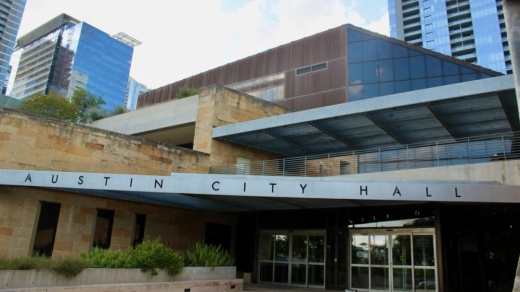Initiated in 2012, Austin's attempt to rethink city rules for land use has moved through various forms over the past decade. A years-long development code rewrite process, CodeNEXT, fizzled out in 2018 but was followed by a new version the next year. That eventually made it weeks away from a final City Council vote—before ending up the subject of the lawsuit that has held up movement since the early days of the pandemic.
A Travis County district court judge ruled against the city in that suit last spring, leading to City Council's vote to appeal the decision weeks later. And after a year and a half, oral arguments in the city's appeal are now set to be held virtually on the afternoon of Nov. 17 before a panel of justices of the Fourteenth Court of Appeals in Houston.
In the years since city officials first announced their intent to launch a land code overhaul, the process has proven controversial across town given its potential effects on local development, traffic, displacement, neighborhood character and resident property rights. City Council was also divided on the future of the rules governing what can be built throughout Austin as it moved toward its final vote in 2020.
With those issues at the forefront of the overall process, the lawsuit filed in late 2019 centered instead on the question of whether Austin residents could object to the proposed change before its final approval. The city argued they could not, in part given the comprehensive and citywide scope of the update. The plaintiffs—19 local property owners who named City Manager Spencer Cronk and City Council members as defendants in the suit—said Austin's claim had no legal foundation and that a code revision carries the same requirements as an individual zoning case.
State code holds that residents of any property up for a zoning change, or living within 200 feet of the property, must be notified before a public zoning hearing and have the chance to protest the change to a city's zoning commission—in Austin, the Planning Commission. If 20% or more of such neighborhood challenges are deemed valid, the threshold for City Council's vote to approve the rezoning is raised.
In its code revision process of 2019 and 2020, Austin did not notify all city residents when the proposed rewrite headed to the Planning Commission or allow for widespread challenges to the plan, sparking the opposition lawsuit. The city has said the state zoning rules related to hearing notices and resident protests do not apply to its sweeping code update, and that alerting everyone in Austin within 200 feet of every property set to be rezoned through the process would come with a high price tag.
Judge Jan Soifer ruled against Austin's arguments in March 2020 in Travis County district court. Her decision came just as deliberations over the code rewrite were headed toward a possible conclusion at City Hall, but were then put on the backburner given rising concerns related to COVID-19. The city appeal filed last April had since garnered amicus briefs from local groups in favor and opposed to Austin's position.
Both sides of the suit engaged in a written back-and-forth in June over a separate legal case, representing the most recent submissions related to the land code lawsuit, per state appeals court filings. The mid-November arguments were scheduled Sept. 23 and will be held via Zoom videoconference.





